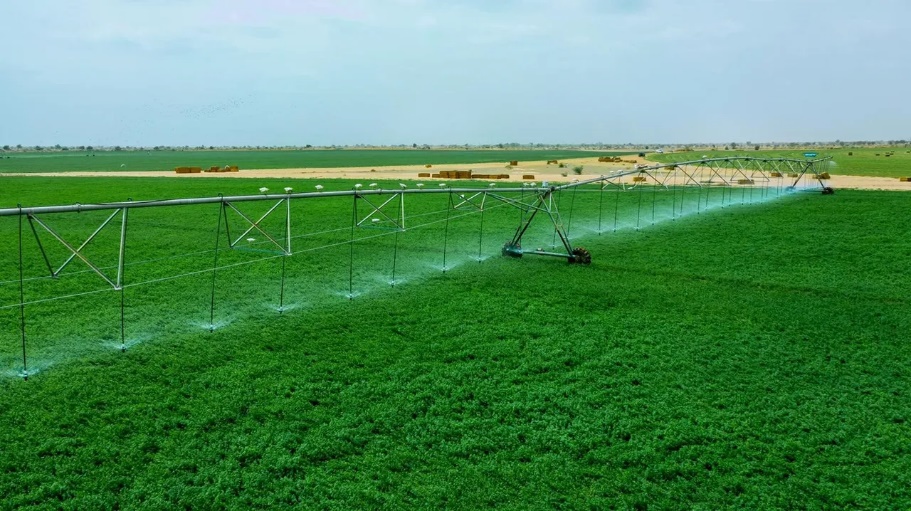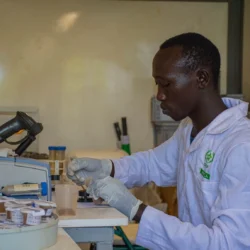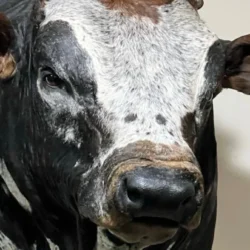EXECUTIVE SUMMARY
This study 1) explains why improved performance of national agricultural research and extension systems (NARES) is required to achieve many widely shared development objectives of African governments and international partners, 2) examines the effectiveness of international efforts to build the capacities of African NARES, and 3) proposes actions to improve the performance of these systems.
Research on this topic has been impeded by the lack of data on the behaviors of, and interactions between, organizations operating in the agricultural research, development, and extension (R&D&E) space in developing countries. Most available quantitative data lack the depth or nuanced context specificity to shed light on complex institutional behavior. Hence, this study primarily derives its findings from in-depth interviews of individuals with longstanding direct experience working in African NARES and international organizations with a mandate to strengthen the capacities of African NARES. In addition to these, key informant (KI) interviews of 26 senior representatives of African and international agricultural R&D&E institutions and three international donor organizations, the study also draws upon available secondary data on national R&D expenditures and scientific capacity.
The study identifies seven recurrent themes emerging from the KI interviews: (i) building strong NARES will initially require a regional approach for many countries; (ii) sustained commitment and funding from African governments is a precondition for building strong NARES and regional and continental agricultural R&D&E systems; (iii) organizations within the international agricultural research system (IARS) often profess to be strengthening the capacities of the NARES, but their overall contribution has been limited; (iv) the effectiveness of donor funding to the IARS depends on strengthening the NARES; (v) donors should confront the issue of creating organizations that duplicate activities of the NARES; (vi) it is important to integrate nutritional objectives into NARES priorities; (vii) there is a need to recognize and strengthen the performance of tertiary education systems.
The study emphasizes the need to differentiate between individual and institutional capacity development. Most key informants concluded that donors and international partners have increased the number of professional African agricultural scientists while contributing relatively little to the institutional capacities of African NARES. Many of these scientists have joined the ranks of international research centers and universities rather than African NARES. Without institutional capacity development of the African NARES, international research centers will continue to draw talent away from the NARES.
Based on the weight of KI perspectives, the study concludes by proposing that African governments and African development organizations build a 21st-century NARES in which research is defined, prioritized, and implemented by NARES with the IARS being in service to the NARES. Achieving this vision will require action by actors including African development agencies and governments, leadership within the NARES, the CGIAR and other international research organizations, donors, and the private sector.
There is a wide consensus, both among the KIs interviewed for this study as well as in the existing literature, that the most crucial step to improving the performance of NARES is for national governments to increase their funding and commitment to supporting their own NARES, to monitor performance, and to demand greater accountability for results. The African Union and the African Development Bank must play the catalytic role in continental leadership and coordination, including seeking greater accountability and commitment from African governments themselves to build their NARES, and allocating sustained funding required to do so.
The African Development Bank can play a catalytic role to create a new regional architecture for agricultural research, organized by agro-ecological zones, to serve the immediate needs of African farmers while simultaneously building the capacities of NARES in countries where they are particularly weak. The African Union and African Development Bank must also work with international funding partners to ensure a reallocation of donor funding to prioritize institutional capacity development of African continental, regional, and national R&D&E organizations.
Public extension systems should enable bi-directional learning between research units and farmers to encourage adaptation in ways that fit farmers resources, and break down the divisions between R&D and extension systems to ensure that the advisory services received by farmers are founded on established research evidence.
International partners, including the CGIAR (formerly the Consultative Group for International Agricultural Research) and international universities, must develop a greater appreciation of how their own effectiveness (e.g., impact generated per dollar of donor funds allocated) is dependent on the performance of local partners working on the ground, and prioritize efforts to collaborate with and build the capacities of these partners.
Finally, donors must ensure that grants related to African agricultural technical innovation (i) include organizations in the NARES at the design stage, (ii) support nationally led priority-setting agendas, and (iii) ensure that the priorities of national governments are reflected in proposal and budget development. Mandating that grants have co-directors from NARES organizations would encourage greater ownership and commitment of African organizations to achieving the objectives of the grant.




